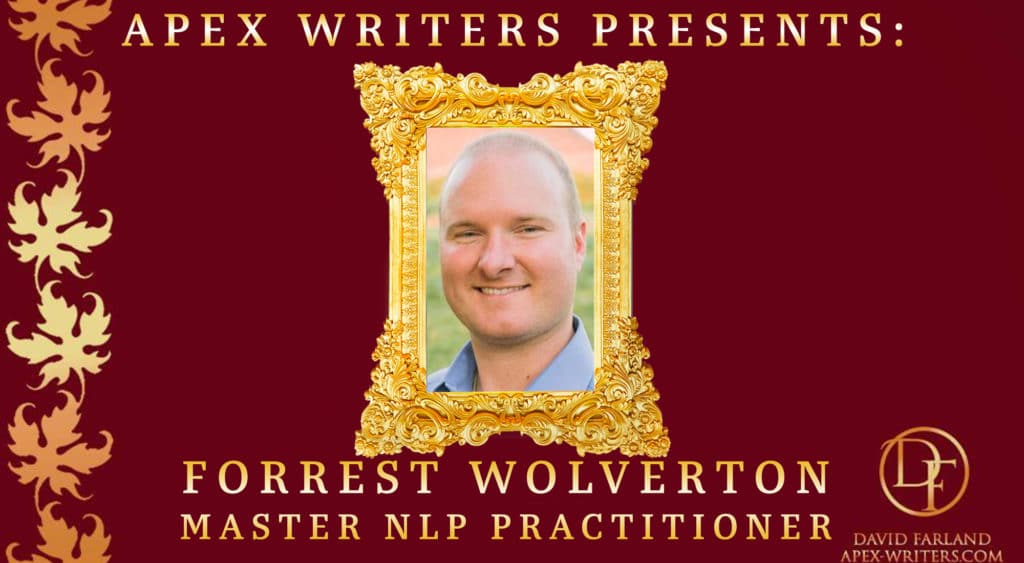Dealing with Writer’s Block
Yesterday I pointed out that “When you get writer’s block, if you will go back in your story to what you wrote the day before and check your work very carefully, you’ll find that you wrote something that your subconscious mind recognizes as being utter baloney, a lie. So you have to find out where you went astray, and start writing from that pint forward.”
Sometimes this means that you simply made a bad artistic decision, but more often than not, it means that you have found yourself at a point where you need more information, and need to either brainstorm or research before you can move forward. In other words, you’re writing along, and suddenly you realize that you’re not really telling a story, you’re just bluffing. Let me give you some examples.
Know Your Setting
Three years ago I began writing a story about a young film producer who goes to China to make his first motion picture. Now, I’ve traveled through China with movie producers before—touring studios, looking at outdoor venues where we could shoot, talking with investors, and so on.
But I’d never been to Shanghai, one of the major filming-making venues in China. So I told my wife, “I think that I need to do some research on Shanghai. I need to go there and work on a big fantasy movie series with some other writers, and maybe even live in the city for a while.”
My wife asked, “Why would you need to do that?” I then told her the kinds of things that I needed to learn, such as, “I need to find out if there are rats and roaches in the hotels. I need to visit a Chinese hospital. I need to figure out why the financiers would want to put a hit out on the director. . . .” The list was quite long.
So, two months later when I got an invitation to go to China to help write a fantasy film trilogy, I was excited. I got to do some gritty research that even included me going to a Chinese hospital, lying sleepless at night while I listened to the rats in the wall of my hotel, and then I had an epiphany as I recognized why the director needed to die.
Now, I plan to finish that book before summer is over.
Know Your Characters
In my novel IN THE COMPANY OF ANGELS, I have a nurse from England who travels across the prairies to Utah in 1856, battling buffalo stampedes, Indian attacks, winter storms, and starvation.
The incidents were all ripped right out of autobiographies from the people who went, but as I began to write, this woman’s character eluded me. Why? Because I didn’t have her voice created. I needed to get that down properly in order to write her story. So I went to female authors from her time and vicinity and simply read, absorbing the proper tone and voice and attitudes until I felt that I could do some justice in telling her story.
Know Your Conflicts
To some degree, your conflicts arise out the world that you’ve created. For example, in the world above, I had all sorts of conflicts that I could write about that came just from the setting of the American West. Yes, there were lightning storms and a flood that drove off cattle. There was an outbreak of Indian Wars, where some renegades vowed not to let any settlers cross the plains, and so on.
Other conflicts will grow out of your characters. Some of those may be conflicts with one another, or with societies, while others are interior conflicts that arise within your own protagonists.
Very often, a new writer will be blind to the potential of a conflict, or may find that he doesn’t want to deal with it, yet the subconscious demands that it be dealt with. For example, in the novel above, the woman that I was documenting had twin babies. As the group crossed the plains, after about three weeks all of the nursing mothers lost their milk, as did the cattle that they brought with them. So the first to starve on the journey were the infants.
Did I want to write about this? No. In fact, when I first began researching this, I didn’t even realize what had happened until I noticed the infant babies dying day by day. Did I have to write about this? Of course. What mother wouldn’t be driven mad with dread as she watched this happen? Besides, my character, Eliza, did lose one of her twins. So I had to stop, and integrate this into my story line.
This happens with just about every novel—I spot potential conflicts that may need to be investigated and integrated, and I then reconsider which conflicts to use.
Know Your Plot
To a great degree, your plot is driven by your setting, characters, and conflicts. In other words, if those are well researched, then the story may drive itself.
But as a writer, I may find that certain parts of the story feel “bare,” unexciting. When that happens, I may feel blocked. So I look for ways to arrange the story that are more fascinating, or that give me more emotional bang. I may decide to use certain plot devices to help with that (see my book MILLION DOLLAR OUTLINES).
For example, I may look for ways to add “timebombs” to my story, or create a new growth arc for a character. In short, I study my story and see if there are ways to amplify the power of my plot by using various writing tools.
Know Your Approach
Every novel that I write may require me to make some artistic decisions. I ask myself, what kind of narrative voice do I want to use? Do I want to be serious or jocular, invasive or invisible, dissonant or lyrical? Do I want to develop a certain voice to mirror the historical time of the novel?
These artistic considerations don’t even occur to some authors, while others worry about them endlessly.
Once you as an author understand your world, your characters, conflicts, plot and treatment, you’re ready to write. In fact, as the award-winning author Kenny Kemp put it yesterday, “I find that if I’ve researched my novel properly, it will take off and practically write itself.”
It isn’t by accident that with my writing course, The Story Puzzle : How to Brainstorm and Outline a Bestseller, I have authors go through each of these areas and think about them in advance.
The very first person who took the lesson on brainstorming his setting wrote back and said, “Now I understand why I’ve never been able to finish a novel.” Yet within the week, another writer who took the lesson on how to brainstorm characters wrote and said, “This is what has been stopping me.”
Those Lucky Few
There are of course some authors who never feel blocked. Most of the time, these are authors who do enough brainstorming and research that they really are ready to write when the time comes.
But because every story is different and may require the author to grow or stretch in new ways, even old pros can find themselves blocked when writing. Barring brain injuries or disease, I haven’t found any other things that will stop a writer. If you can quickly figure out what your problem is, usually you can do any research that you need to within a matter of minutes and become “unblocked.”
Happy Writing!
David Farland









